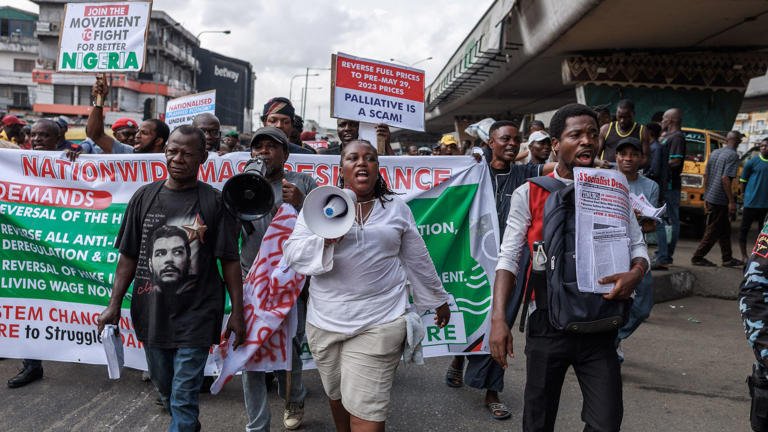Washington, D.C. – Nigeria is currently facing its most severe economic downturn in nearly three decades, marked by public discontent due to skyrocketing prices and stagnant wages. The nation’s annual inflation rate is approaching a staggering 30%, and the Nigerian currency is rapidly losing value. This financial turmoil has sparked nationwide protests over the recent government reforms.
As Africa’s largest economy, Nigeria boasts a population of 210 million, with half under the age of 18. The Financial Times has highlighted the potential for increased social unrest if the economic strain on working Nigerians persists, with the country’s major trade unions threatening a national strike.
The economic challenges have been intensified by policies introduced by President Bola Tinubu, who assumed office on May 29, 2023. Historically, Nigerians have benefited from some of the lowest petrol prices globally due to government subsidies. However, under international pressure, including from the International Monetary Fund (IMF), President Tinubu’s administration abolished these subsidies in favor of a market-based pricing system.
The immediate removal of fuel subsidies upon President Tinubu’s inauguration was met with both surprise and international acclaim. In a bid to align with economic orthodoxy, he also unpegged the naira from the dollar. The president has defended these actions, asserting that the subsidy represented a significant drain on the nation’s budget and that the funds could be more effectively allocated elsewhere.
Nevertheless, these reforms have led to a dramatic increase in fuel prices and subsequent rises in other costs as businesses transfer the heightened transportation and energy expenses to consumers. The currency devaluation has been particularly detrimental, with the naira losing 70% of its value against the dollar since Tinubu’s tenure began, causing the price of imports, which Nigeria heavily relies on, to soar.
Despite the IMF’s endorsement of the subsidy removal, the absence of measures to mitigate the impact has plunged Nigeria into chaos. The government’s failure to implement promised cost-of-living adjustments has raised the specter of mass strikes. Emergency measures have been introduced, such as establishing a board to control food prices and distributing supplies from the national grain reserve. However, critics argue that the distribution methods fail to adequately reach impoverished families.
In an effort to alleviate the financial burden on poorer households, the government provides a monthly cash transfer of 25,000 naira. Yet, with the rampant inflation, this amount provides little relief. President Tinubu maintains that the country will reap long-term economic benefits from these reforms, but signs of wavering government resolve are emerging, particularly regarding the fuel subsidy. Current petrol prices remain below import costs, suggesting a possible covert reintroduction of subsidies, which the government has not officially acknowledged.
Amidst this economic strife, violence, and insecurity in rural areas add to the nation’s challenges, with no immediate resolution in sight and inflation expected to peak in the second quarter of 2024.

